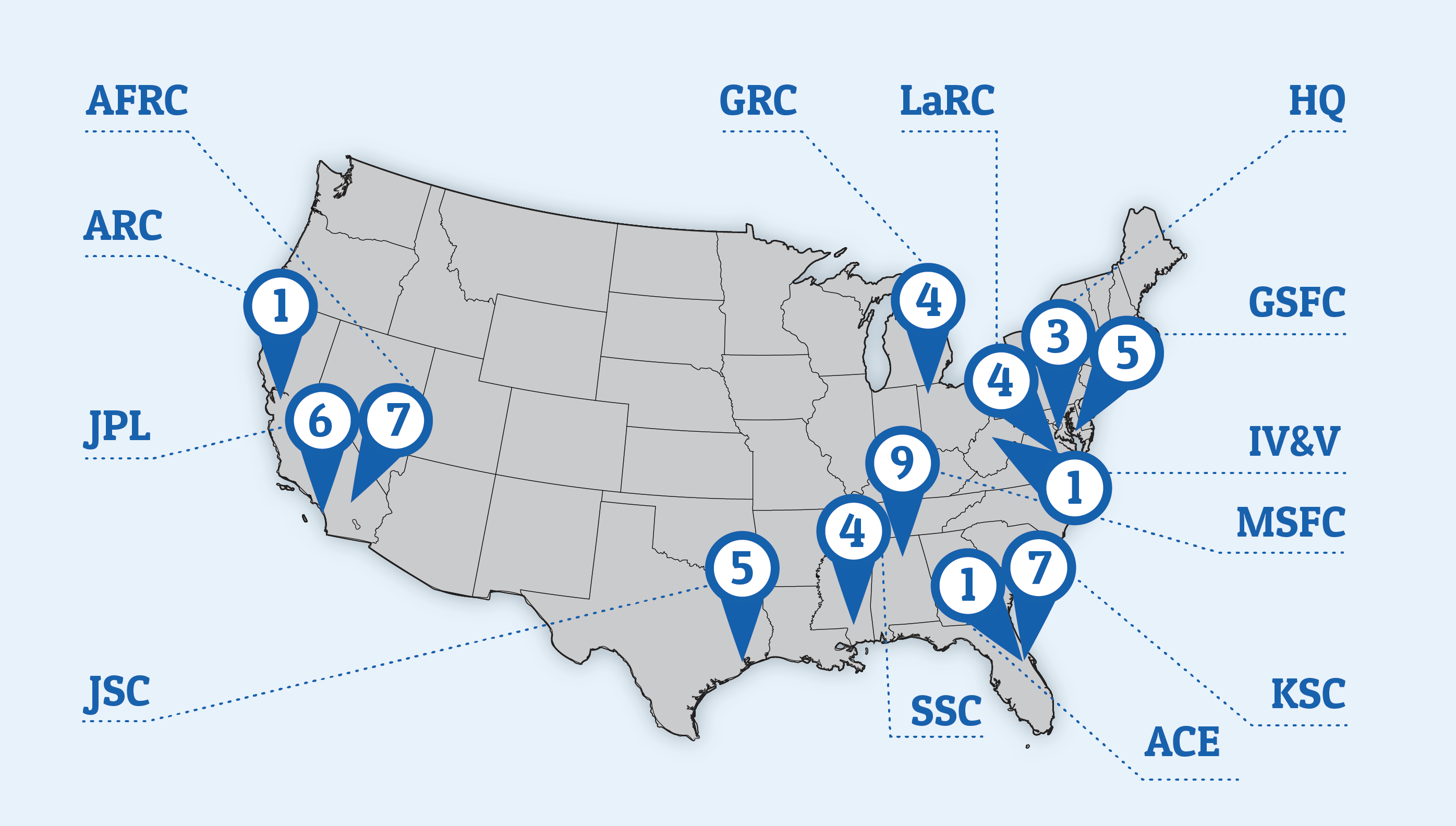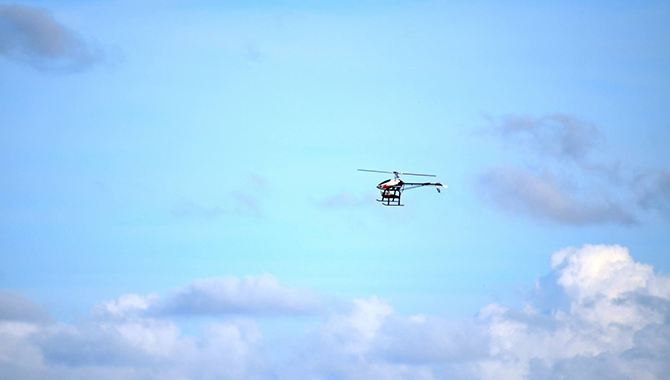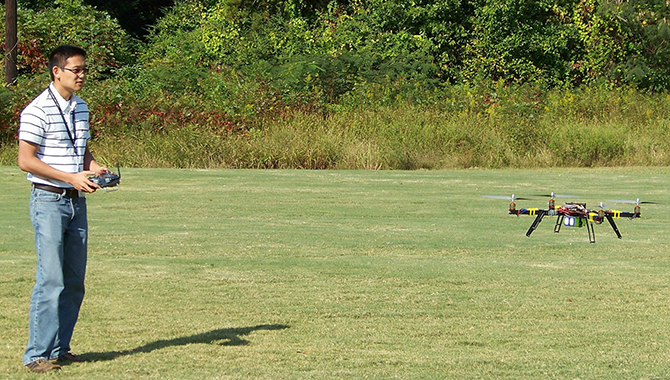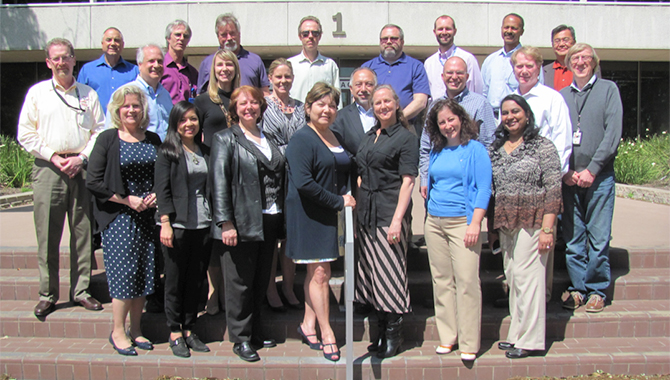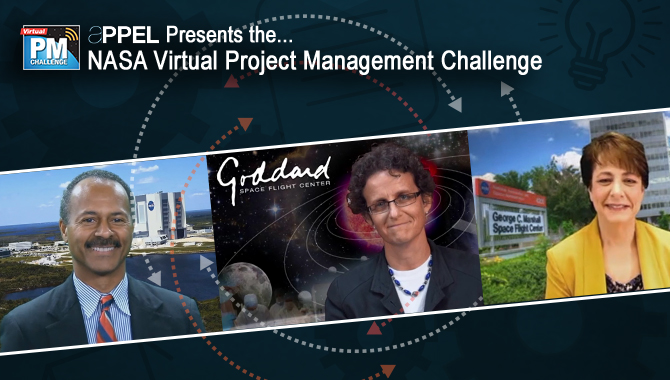
Dr. Michael Bell, Chief Knowledge Officer at KSC, Dr. Barbara Fillip, Knowledge Management Lead in the Flight Projects Directorate at GSFC, and Dr. Jennifer Stevens, Chief Knowledge Integrator at MSFC, discussed different ways that NASA leverages lessons learned to support mission success.
Image Credit: NASA/APPEL
How does a learning organization like NASA leverage real-world experiences to drive mission success? A recent Virtual Project Management (PM) Challenge offered answers.
Engineers and scientists at NASA do the impossible every day. As they strive to develop novel technology to uncover the secrets of the universe, making mistakes is a natural part of the process. During the Virtual PM Challenge Making New Mistakes: Lessons Learned at NASA, knowledge experts from across the agency discussed how the lessons from these experiences are captured, shared, and integrated into approaches, processes, and policies to enhance the success of the agency’s future projects and programs. The Virtual PM Challenge can now be viewed online.
Speaking at the Challenge, Dr. John Mather, Senior Astrophysicist at Goddard Space Flight Center (GSFC), said, “The essence of science is working on the stuff we don’t know. There’s no answer in the back of the book. You study and you work. And it doesn’t work today and it doesn’t work tomorrow and it doesn’t work the day after—and finally it works a little bit and you go on.” He added, “Every day you’re learning about this stuff that didn’t work. You could look at it as a mistake; or you could look at it as we learned something.”
As a dedicated learning organization, NASA is committed to capturing and sharing the knowledge that results from these learning experiences that progress from “it doesn’t work” to “Eureka!” At an agency-wide level, the Lessons Learned Information System (LLIS) functions as the organization’s repository for captured experience. The LLIS, which was instituted in the 1990s, contains over 4,000 lessons. The oldest dates back to the Apollo era. Teams are encouraged to submit lessons from experiences both positive and negative to the database so that future project teams can benefit from their insights. The LLIS can be accessed by agency personnel from within the NASA Engineering Network (NEN) website, where they have access to the lesson, the context around the lesson, and a NASA point of contact for the lesson. The public can also explore the database by visiting the NASA Public Lessons Learned System.
According to Dr. Michael Bell, Chief Knowledge Officer at Kennedy Space Center (KSC) and Program Manager for the LLIS, “The point of lessons learned is we don’t want to make the same mistakes over and over. So by looking at the lesson learned system, it helps to bring awareness to some of those [past mistakes] and the team can go off in another direction to try and solve [their] design challenge.”
Team members are encouraged to look through the lessons in the database to support new projects. “Sometimes looking at the lessons in the early part of a process or project just sparks creativity in the design process. Or maybe brings heightened awareness to a risk [based on mistakes] that other projects have made,” Bell said.
To capture the lessons that are included in the LLIS, NASA knowledge experts work with project teams at agency centers to reflect on their own experiences in order to highlight key lessons. At GSFC, Dr. Barbara Fillip, Knowledge Management Lead in the Flight Projects Directorate, works with project teams from the beginning to the end of the project life cycle to identify relevant lessons from their experience.
A particularly effective tool for capturing lessons learned at key project milestones is a Pause and Learn session. “[D]uring a Pause and Learn session—which is really an open conversation between the team members—a lot of things will come out,” said Fillip. “I’m there to help them figure out what is the real lesson that we want to capture for other projects to take away.”
To ensure those lessons are available to teams throughout the agency, they can be added to the LLIS. They may also be shared locally in peer-to-peer workshops and meetings so they are disseminated across the center.
Making the lessons available through a wide range of venues is critical, said Fillip. “You want to encourage more of a learning culture and not necessarily an exclusive focus on lessons learned. I like to think about learning as a process more than the [collection of] lessons learned documents themselves.”
NASA centers also capture and disseminate lessons learned at an organizational level. Marshall Space Flight Center (MSFC) employs a multi-disciplinary and cross-organizational Distilling Team to evaluate lessons learned that can support optimal program and project performance at the center.
“Our Distilling Team is based on the idea that we can only work so hard—so we need to work smarter,” said MSFC Chief Knowledge Integrator Dr. Jennifer Stevens. The Distilling Team examines lessons learned and makes recommendations to the center’s Lessons Learned Committee, which can then pursue the dissemination of the lessons.
Stevens encourages everyone to remain open to learning, whether at the individual, team, or organizational level. “PM is timeless. And these lessons that we have coming through—you might have projects that are different missions, different procurement strategies, different relationships in the team. But there are essential PM skills and practices that are timeless. You can glean those from the experiences of experienced PMs and from these lessons. PM is a craft. It’s a discipline. And you have to decide: I’m going to hone my craft. I’m going to improve my discipline. You don’t need to know everything, but you do need to know where to look for answers and who to ask.”
Taking the time and effort to learn from mistakes is difficult, but it’s a key to future success.
“I think quite a lot of people don’t want to learn the lesson—they just want to suffer a little and then go on,” said Mather. “I think really learning a lesson says: I’m going to change how I think and feel about stuff, so…not only don’t [I] do that mistake again, I’m going to change the approach that led to it. That’s a little harder.”
“NASA’s a risk-averse culture. You hear that a lot. But we have to take risks to do what we do,” said Justin Smith, Orion Independent Verification and Validation (IV&V) Project Manager. “[H]opefully, we can learn lessons—and if we are going to fail, we’re going to learn from it.”
Stevens echoed that sentiment. “Looking back at lessons learned—getting smart before you start—makes your project stronger.”
To learn more about how NASA works to compile and leverage the experience of project teams across the agency, watch the full Virtual PM Challenge, Making New Mistakes: Lessons Learned at NASA, now available online.
To receive email notifications about upcoming NASA Virtual PM Challenge sessions and recorded session availability, please subscribe to the Virtual PM Challenge email list.






